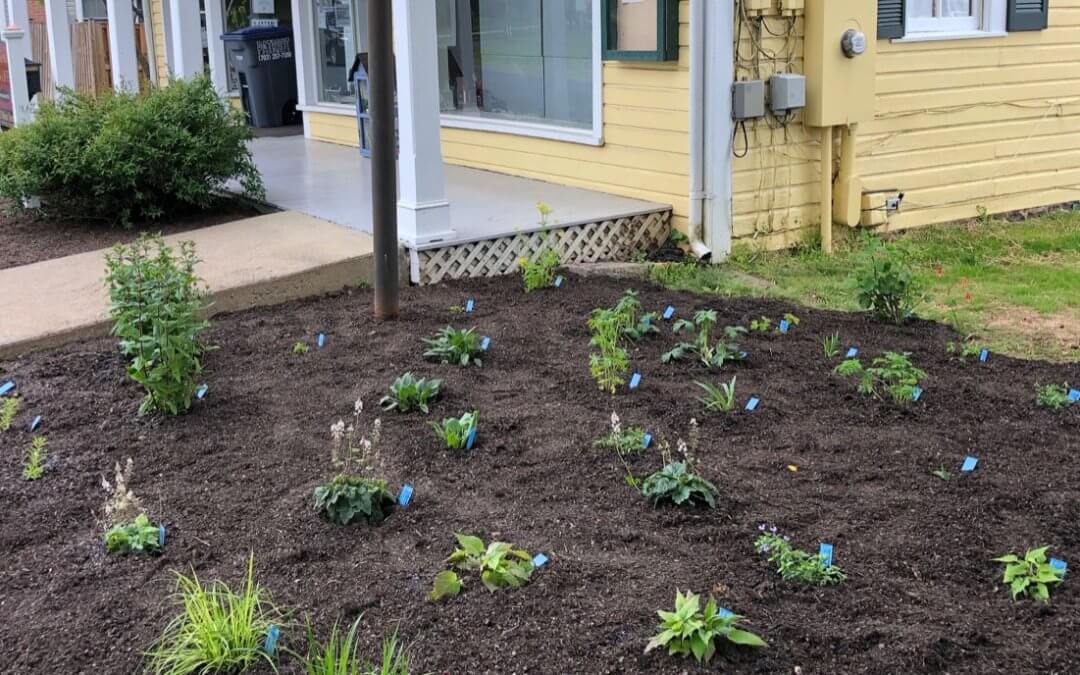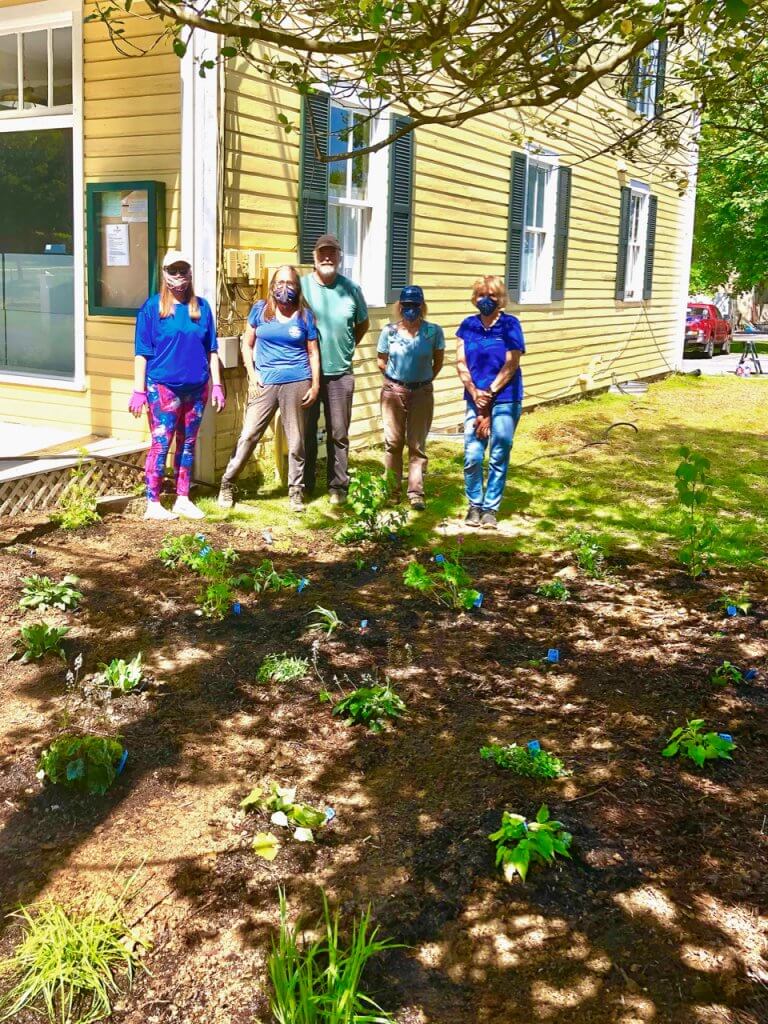
Round Hill Goes “Native”
There’s a new garden in town. Stop by the Town Office to see our Virginia Native Plant Garden. The garden was supported by the Town and installed by volunteers with Round Hill Outdoors, Virginia Master Naturalists and Loudoun Wildlife Conservancy.
Why plant “native”?
Do you like birds? Then you’ll want a host of caterpillars hanging around your house. Do you like to grow veggies? Then you’ll need a few bees in your neighborhood. Here in the U.S., we have a long history of importing plants from distant lands. Some to eat. Some for their looks. The problem is that these exotic plants and our vast expanses of lawn don’t support our bees, birds or other wildlife.
Even worse, some introduced plants are invasive in our environment. When a plant has few or no insects feeding on them or plants that can’t compete with them, they crowd out native plants. Think garlic mustard, multi-flora rose, barberry, Japanese stilt grass. Add to that all land going under development as shopping centers and housing developments, and we’ve lost a great deal of native habitat.
So, what can we do? Plant native. Birds and butterflies depend on native plans for food, shelter and reproduction. Our gardens can become sanctuaries for these critters. And that’s not the only benefit of going native. Plants that are naturally adapted to our local soils and climate, will need less fertilizer, water and pesticides–so they’re easier to maintain as they help reduce the chemicals introduced to our habitats.
Using native plants helps preserve the balance and beauty of our natural ecosystems. And it’s not hard to “go native.” Groups like Plant NoVa Natives and Audubon at Home offer abundant advice. Plus, many of our local nurseries carry a selection of Virginia native plants, and we even have an all-native nursery, Watermark Woods, near town.
The Virginia Native Plant Garden will be maintained by Round Hill Outdoors.

Planting Crew
Kathi Hottinger
Jody Brady
Bill Brady
Carol Dennis
B.J. Lecrone

Recent Comments